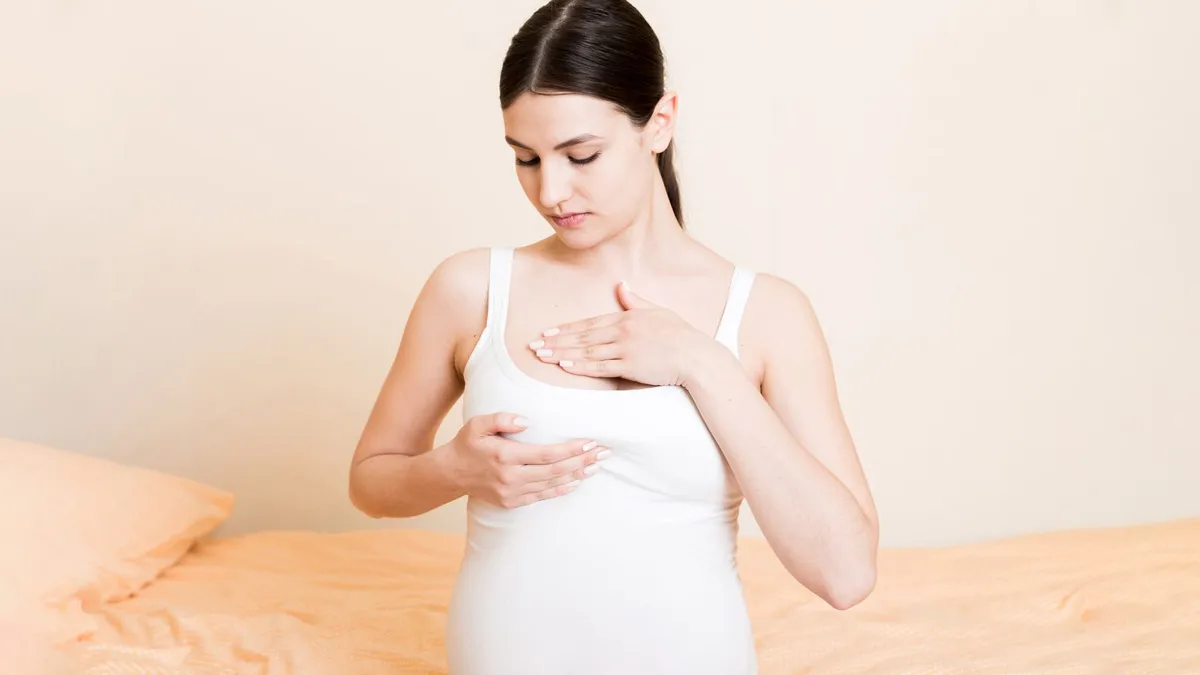
Many women hear all kinds of myths about their bodies after pregnancy. One common worry is about breast size, especially after the baby is born and breastfeeding ends. For new mothers, noticing a change in breast size can be confusing and even upsetting. You might wonder if something is wrong or if you did something to cause it. The truth is, you’re not alone, and this concern is much more common than you think.
Table of Content:-
Why Do Breasts Feel Smaller After Giving Birth?![breast decrease after delivery 1 - 2025-07-14T143128.642]()
Dr Sweta Kumar, Consultant Obstetrician and Gynaecologist, Surya Mother and Child Super Speciality Hospital, Pune, shares: "I get asked all the time by new moms: 'My breasts feel smaller and empty. Is something wrong?'". She continues that with pregnancy and breastfeeding, your breasts undergo some of the most dramatic changes your body can go through.
Here's what's happening:
- Hormones such as oestrogen and progesterone increase during pregnancy. This causes the tissue of the breast to expand, and you may increase one or even two cup sizes.
- Your breasts receive more blood supply, and your skin expands. Nipples might get darker, and veins become more prominent.
- Hormone levels fall rapidly following birth. Initially, your breasts may feel full or even swollen as the milk comes in.
- As breastfeeding goes on and gradually ceases, the milk-producing cells reduce, and breast fat relocates.
- For most women, breasts return to pre-baby size or, in some cases, become smaller. The skin may appear flabby, and breasts may appear "deflated."
Dr Kumar explains, "This is all normal. It's your body's way of adjusting after the hard work of pregnancy and feeding your baby. It doesn't mean anything is wrong, and it's not a sign that you failed at breastfeeding."
ALSO READ: Breastfeeding While Travelling: Hygiene Tips For New Mothers
How to Care for Your Breasts After Pregnancy![breast care after pregnancy 3 - 2025-07-14T143132.934]()
It's natural to feel somewhat bummed about these changes, particularly when your body feels alien. Keep in mind, though, that your body just performed something incredible. Here are some easy ways to take care of your breasts during recovery:
- Wear a supportive bra: Opt for a good-fitting nursing or sports bra. This minimises tension on the skin and ligaments.
- Nourish yourself: Eat food with protein, healthy fats (such as omega-3s), and vitamins C, E, and zinc. These will aid your skin and tissues in healing.
- Hydrate: Water will maintain healthy skin.
- Exercise lightly: Gentle upper-body workouts, such as wall push-ups or resistance-band rows, will tone the muscle underneath your breasts.
- Take care of your skin: Apply sunscreen to avoid additional skin damage and allow your skin to recover.
- Be patient: In most cases, your skin and ligaments will restore some tightness in one year.
Dr Kumar also suggests doing a monthly self-exam after your hormones stabilise, just to see if any new lumps, redness, or changes are there. If you feel pain, swelling, or anything else, discuss it with your doctor.
A study published in the Aesthetic Surgery Journal reported that breast volume tends to decrease after breastfeeding, and some women experience sagging or loss of fullness. The researchers accounted for the changes as largely resulting from the stretching of ligaments and skin during pregnancy and breastfeeding rather than breastfeeding itself.
ALSO READ: Is Fever an Early Sign of Pregnancy? Know From an Expert
Takeaway
Breast changes following pregnancy and breastfeeding are not abnormal and occur in many women. With time, proper nutrition, gentle exercise, and proper support, your breasts may regain some of their firmness. Take care of your body and understand that these changes are a part of your process as a mother.
Also watch this video
Read Next
Breastfeeding While on Medication? What’s Safe and What To Avoid: Guide For Nursing Mothers
How we keep this article up to date:
We work with experts and keep a close eye on the latest in health and wellness. Whenever there is a new research or helpful information, we update our articles with accurate and useful advice.
Current Version


